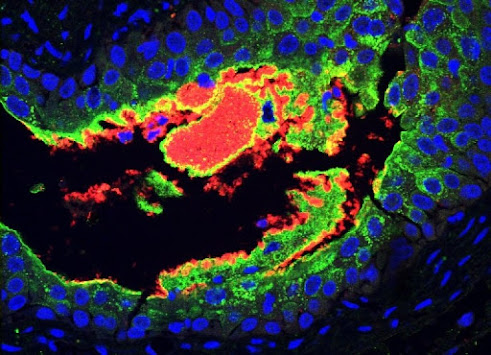 |
| The picture shows large lumps of E. coli (in red) that infects the bladder of a mouse with diabetes. Photo: Soumitra Mohanty |
Reduced immune systems and recurrent infections are common in type 1 and type 2 diabetes. Now researchers at Karolinska Institutet show that people with diabetes have lower levels of the antimicrobial peptide psoriasis, which is part of the body's immune system, which impacts the leaves' cell barrier with increased risk of urinary tract infection. The study is published in Nature Communications.
Diabetes is due to insulin deficiency or reduced insulin sensitivity. The hormone insulin regulates glucose (sugar) and thus energy to the body's cells. In people with type 1 diabetes, the body has stopped making insulin and in type 2 diabetes, cells have become less sensitive to insulin, which contributes to high blood glucose levels. Diabetes is a common disease that affects health in several ways.
Among other things, the innate immune system determinants and many get recurrent infections, such as urinary tract infections caused by E. colibacteria. In people with diabetes, there is an increased risk that these will lead to general blood poisoning, sepsis, which is based on the urinary tract.
















.jpg)